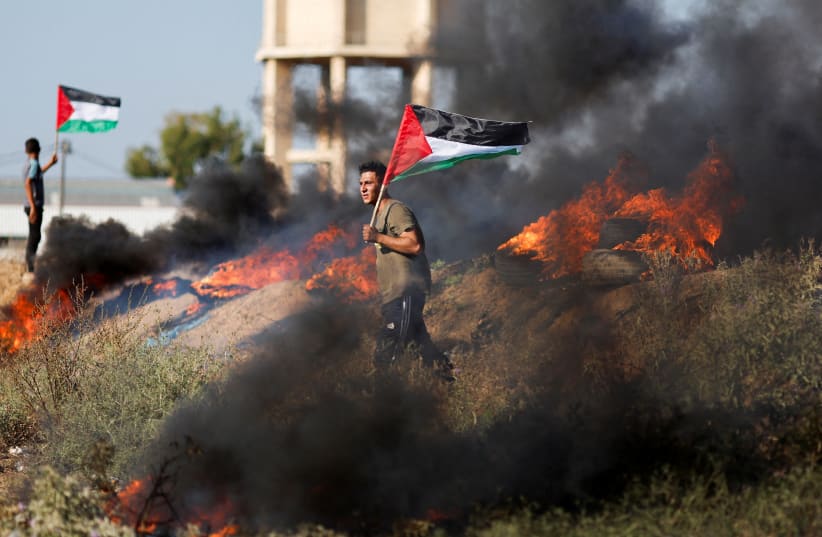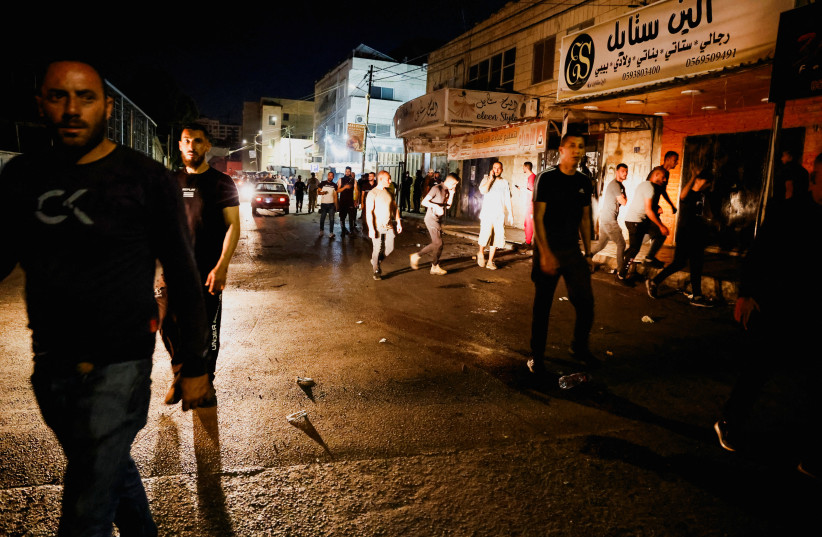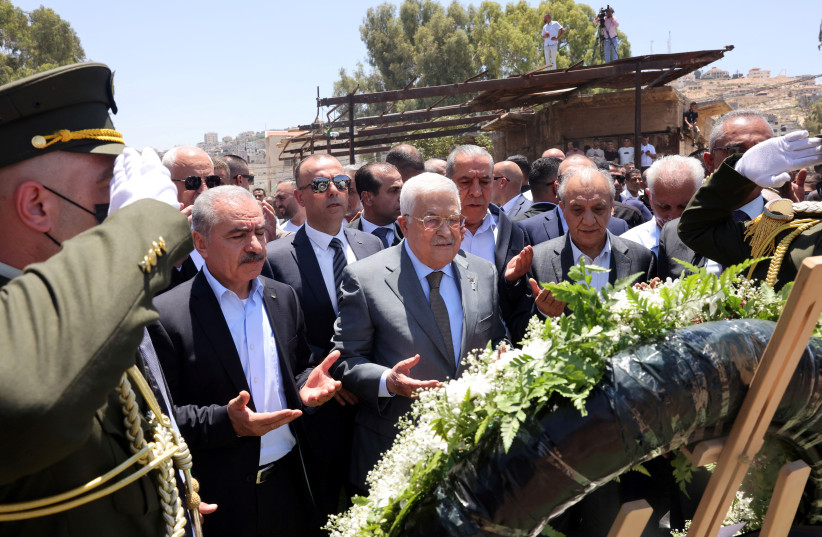A major article in The New York Times on July 6, reporting the aftermath of the Jenin conflict, began with this remarkable sentence: “Israel’s military said on Wednesday that it had withdrawn from the occupied West Bank city of Jenin after a large-scale incursion.”
That’s what I would call the very definition of an oxymoron. The Merriam-Webster dictionary says an oxymoron is “a combination of contradictory or incongruous words.”
They might as well add Jenin to that definition. According to The New York Times, Jenin is “occupied” by the Israelis, yet it is also a city into which the Israelis have staged “a large-scale incursion” and from which they have then “withdrawn.”
Apparently, nobody at the Times noticed that if the Israelis are indeed “occupying” the city, they wouldn’t be invading it and withdrawing from it. They would be there all the time. Only, they’re not.
Once upon a time, the Israelis did occupy Jenin. From 1967 to 1995, to be exact. There was an Israeli military governor and a military administration that ruled the city. There were Israeli troops patrolling the streets and keeping order. And then they left.
As part of the Oslo II agreement, of September 1995, the Israelis withdrew all their governors and military administrators, and troops from the cities where 98% of the Palestinian Arabs reside. Including Jenin. The “occupation” came to an end, literally.
But not according to the Times, it didn’t. Three more times in that same July 6 article about Jenin, the daily referred to Israel “occupying” Palestinian areas. One of the references quoted an “ex-militant” (that is, a convicted terrorist) named Nidal Naghniyeh complaining that the Palestinian Authority has failed to “protect us from the occupation.”
Is Naghniyeh hallucinating? Does he think he sees Israeli troops or an Israeli governor in Jenin each morning? Of course not. He lives in Jenin. He knows there are no Israelis occupying the city.
When "occupation" means more than just the West Bank
But the word “occupation” does not mean to Nidal Naghniyeh and other Palestinian Arabs what it means to the Times. To Naghniyeh and company, the very existence of Israel is an “occupation” of some part of “Palestine.”
Don’t take my word for it. Look at the maps of “Palestine” that are used by the PA in its offices, schools, and news media. They show all of Israel as “occupied Palestine.” Read the official platforms of Hamas, Fatah or Palestinian Islamic Jihad, or any of the other terrorist groups – they describe all of Israel as “occupied Palestine.”
Statements by Palestinian Arab leaders routinely use the word “Occupation” – with a capital O – in place of Israel, as in “The Occupation today massacred defenseless Palestinians.” They don’t use the word “occupation” to describe the reality on the ground for Palestinian Arabs. They use it as a euphemism for the State of Israel, as a way of saying that Israel’s presence in Tel Aviv and Haifa, Israel’s very existence, is an illegitimate occupation of Arab land.
American journalists who sympathize with the Palestinian cause have a vested interest in perpetuating the myth that Jenin and other cities are still “occupied.”
Because if Israel is an “occupier,” then Israel is to blame for the absence of Midle East peace.
If Israel is “occupying” Arab territory, then Arab violence seems justified or at least understandable.
If there’s still an Israeli “occupation,” then the Jewish residents of Judea-Samaria can be demonized, because they are the instruments of the “occupation.”
Perpetuating the “occupation” accusation depends on people not talking about it. Critics of Israel count on interviewers not asking them to explain their position. I’ve tried to pierce that curtain of silence. It’s not easy.
A few years back, I asked a prominent figure on the American Jewish left how he could claim Israel “occupies” the Palestinian Arabs when he had been to Palestinian cities, and seen with his own eyes that there were no Israelis. His reply: the existence of Israeli security checkpoints constituted occupation.
That was the best he could come up with – a handful of checkpoints, in a region of more than 2,000 square miles. And most of them are along Israel’s borders, to keep out suicide bombers, like the checkpoints in every airport in the world, which keep suicide bombers off our planes.
The problem with trying to sustain the myth of “occupation” is that they can’t keep pretending forever. Little by little, people will start asking questions. Visitors to Palestinian Arab cities will wonder where all the “occupation troops” have gone.
Some uninformed journalists will naively request to interview the Israeli military governor of “occupied Jenin,” only to be told that the governor left long ago. Maybe a curious congressman, visiting some Palestinian-Arab city, will ask why the only soldiers in town seem to be from the PA security forces. And thus the myth of “Israeli occupation” will begin to crack.
This isn’t a matter of semantics. It goes to the very nature of the Arab-Israeli conflict today. It reminds us that the Palestinian-Arab war against Israel is not over the “occupation of Jenin,” but rather the “occupation” of Tel Aviv and Haifa.
The writer is the president-elect of the Religious Zionists of America. He is the father of Alisa Flatow, who was murdered in an Iranian-sponsored Palestinian terrorist attack in 1995, and the author of A Father’s Story: My Fight for Justice Against Iranian Terror.


